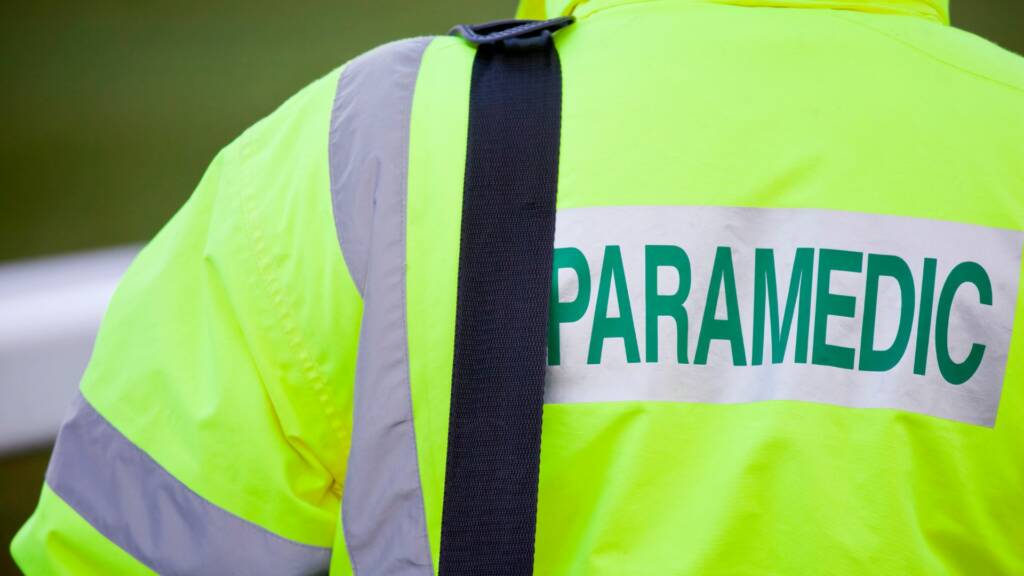
Noah’s misdiagnosis case settled for a six-figure sum
Noah, a young man, noticed swelling in his testicle, prompting immediate concern and a visit to his General Practitioner. His GP, recognising the potential seriousness, referred him to a local...

5 minute read
Rachael attended her GP practice complaining of severe back pain and leg pain which made it difficult to walk at the time. Her GP carried out an assessment and gave her advices about the sort of symptoms/deterioration she should look out for. Rachael’s condition became significantly worse and she contacted her GP’s surgery and sought a call back to discuss these symptoms.
The following day she rang the surgery again and was later advised that there was a referral letter available to her, should she wish to attend A&E.
Her condition deteriorated and she developed significant numbness in the saddle area, as well as severe pain and she called an ambulance that night and attended the A&E Department.
Despite the fact that certain symptoms were recorded by the ambulance paramedics which were typical of cauda equina syndrome (CES) and were noted on handover to the Hospital, there was a significant delay in having an MRI scan carried out.
Cauda equina syndrome occurs when a bundle of nerves in the lower spine are compressed and it is normally urgent as if it is not treated promptly, a person can suffer severe permanent and severe problems including paralysis.
The first Registrar to see Rachael at the Defendant Hospital felt that she may well have cauda equina, but the Orthopaedic Registrar did not agree and did not make arrangements for an urgent scan that night.
An important issue in the case related to the referral pathway to another hospital where urgent MRI scanning was required but wasn’t available at the defendant hospital overnight. An MRI scan was carried out the following morning and showed that Rachael did indeed have cauda equina syndrome and that urgent surgery was required.
Due to communication issues, there was a further delay of several hours in transferring her to the Hospital where the surgery would take place. Following the surgery and due to the alleged delay, Rachael was left with very significant mobility issues together with permanent nerve damage resulting in lifelong pain, mobility issues and severe damage to her bladder and bowel.
Rachael contacted us as a result of reading about our similar cases online and Joice Carthy was instructed in the case.
Proving liability was difficult in this case and liability remained at issue throughout, although some months before the Trial, the Hospital admitted some breaches of duty. Because cauda equina syndrome is so timesensitive, an urgent A&E referral earlier by the GP would likely have prevented most of the damage, but negligence was fully denied by the GP practice.
In addition, there were factual disputes in the matter as to what occurred in communications between the Plaintiff Rachael and her GP practice. Whilst we believed that the negligence on the part of the Hospital Defendant was more clear-cut, the Defendant argued that some or most of the damage would have already occurred by the time she attended A&E.
A number of experts were instructed on the liability issues (both negligence and causation) in the area of Accident & Emergency Medicine, Orthopaedics, Neurosurgery and General Practice.
We obtained a large number of reports on how Rachael was affected by her injuries. As well as significant pain, she had a lack of sensation in the areas of her legs and feet, which resulted in her injuring herself very easily, as she was unable to feel if she walked on something sharp or dangerous.
Her future needs included adaptations to her accommodation, medical care, aids and appliances, pain management, various therapies and potential future surgeries. This involved obtaining a total of 20 reports assessing Rachael’s future needs.
The Defendants did not admit any wrongdoing and a Trial date was set.
A few months before the Trial date, the Solicitors for the Hospital notified us that they wished to amend their Defence to make certain admissions around breach of duty. No such admissions were made by the GP practice.
Approximately a week before the Trial date, a lengthy mediation which lasted about 10 hours was held and the matter settled for the sum of €2m to compensate the Rachael for her pain and suffering and to cover her future care and medical treatment and aids and appliances.
The full value of the claim was considered to be higher than this, but there were very complex liability issues in the case. Although to the Plaintiff’s credit, she had attempted to keep working for as long as possible following her injuries, this became unmanageable over time due to pain, fatigue and her mobility issues, so she suffered a loss of earnings.
Rachael was pleased with the outcome as she had huge concerns about her future and that of her child, given that she was no longer physically able to work in her previous employment.
We are expert cauda equina syndrome claims Solicitors. If you or a loved one has been impacted by a diagnosis of CES and would like to know more about what we do, visit Cauda Equina Claims or, Contact Us to speak with an expert.
In contentious business, a solicitor may not calculate fees or other charges as a percentage or proportion of any award or settlement.
The name referenced throughout this case study is a pseudonym that has been put in place to protect the client’s privacy.

Noah, a young man, noticed swelling in his testicle, prompting immediate concern and a visit to his General Practitioner. His GP, recognising the potential seriousness, referred him to a local...

Lily’s first experience of childbirth was marred by a severe complication following an epidural procedure at a large maternity hospital. She was admitted for the delivery with an epidural for...

Ciara has spastic quadriplegic cerebral palsy, needs 24-hour care and has to use a wheelchair, following catastrophic injuries as a result of circumstances at the time of her birth in...
Let us know and we’ll get right back to you by filling out the form below.
"*" indicates required fields